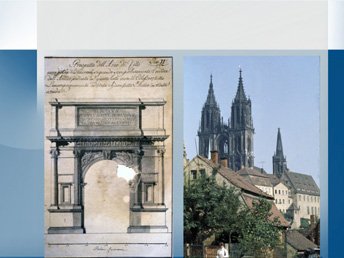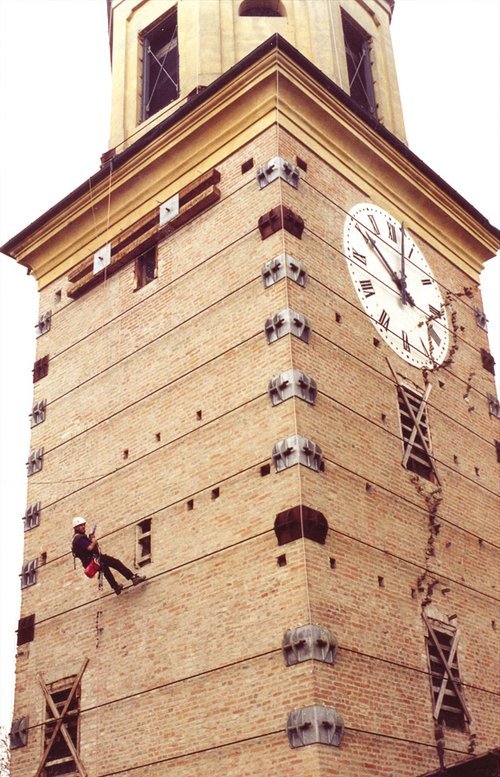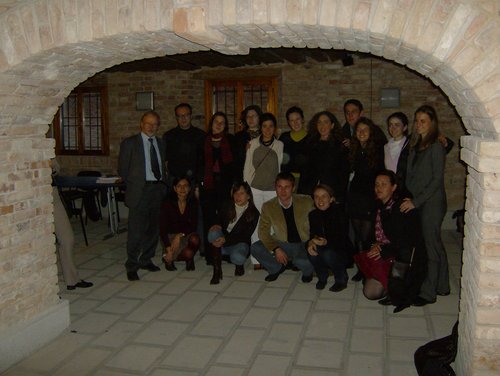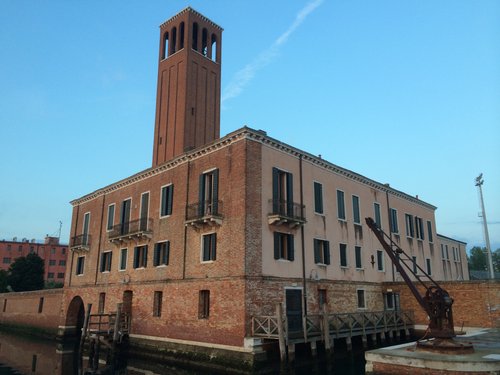Doctoral Study Program Cultural Heritage Studies
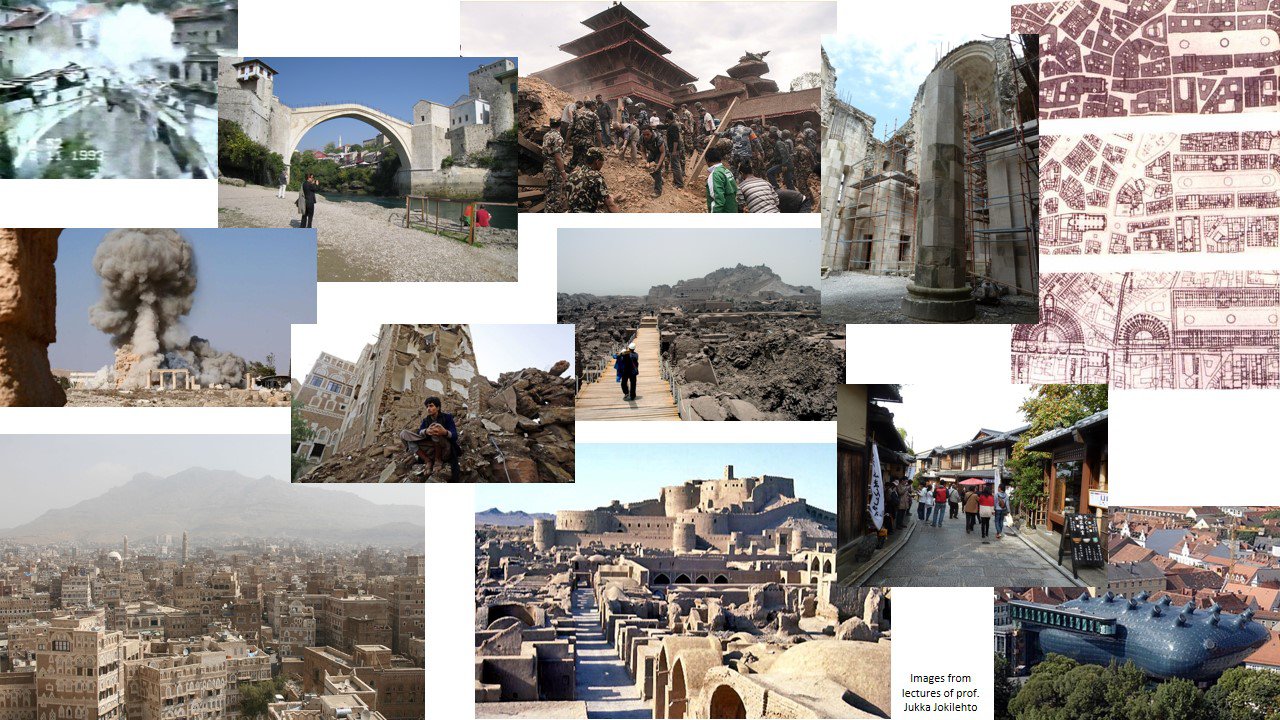
| Study programme: | Doctoral study programme Cultural Heritage Studies |
|---|---|
| Main fields of study: | Integrated protection, planning and management of cultural heritage, Sustainable development of the built environment, Cultural economy and creativity, Cultural heritage and tourism |
| Programme code: | 3SKD |
| Programme cycle: | Third cycle doctoral degree |
| Name of the qualification: | Doctoral Diploma |
| Qualification title: | Doctor of Philosophy |
| Qualification abbreviation: | Ph.D. |
| Final examination: | no |
| Dean: | prof. dr. Martina Bergant Marušič |
| Programme director: | prof. dr. Saša Dobričič |
| ECTS coordinator: | prof. dr. Iztok Arčon |
The postgraduate study program in Cultural Heritage Studies is the evolution of the former program in Economics and Techniques for the Conservation of the Architectural and Environmental Heritage. It is a distinctly international program, carried out in close collaboration with the IUAV University of Venice and other partner universities, since 2005.
Programme description
Doctoral study program in Cultural Heritage Studies is one of the initiators of the post-graduate education in the field of integrated heritage protection both at national and at European context. Since its establishment in 2005, a group of leading international experts from partner universities and institutions have been implementing innovative forms of education, which attract students from all over the world. The program is based on an interdisciplinary integration of basic scientific disciplines and competencies in the field of protection, planning and management of architectural, urban and landscape heritage.
The aim of the study is interpretation of the existing and the investigation of new theoretical and methodological fundamentals, which ensure the understanding of heritage values, and get acquainted with the specific skills that are required to cope with research and professional practice in integrated design of contemporary and sustainable built environment.
As part of the doctoral study, a double degree program for doctoral studies is being implemented in cooperation with the IUAV University of Venice.
Lectures are held in English at the premises of the University of Nova Gorica in Lanthieri Manor in Vipava, Slovenia. Occasionally seminars are held in Venice in collaboration with the IUAV University of Venice.
Lecturers are top international experts and practitioners offering a distinctly international and innovative research context. The program includes collaboration with many international organizations as well as active involvement in international research projects.
Corse structure
Doctoral study lasts four years (240 ECTS credits). The course consists of compulsory and elective courses. The student must successfully accomplish all compulsory courses and a set of general elective and specific elective courses, that are relative to one of four possible specialisations: Techniques and Materials, Economics and Management, Sustainable Historic Built Environment and Heritage, Creativity and Tourism. Candidates for the doctorate must complete 60 ECTS credits in the organized forms of study, 150 ECTS in individual research work and 30 ECTS for a dissertation defence. Lectures, exams and seminars are held in English.
Lecture schedule
Admission requirements
Applicants must satisfy the following admission requirements:
- have completed a 2nd cycle master’s study preogramme;
- have completed at least a four-year academic undergraduate programme accredited with 240 ECTS credits;
- have completed a uniform five year master’s study programme accredited with 300 ECTS credits;
- have completed a specialization after previously finished professional study programme, and had passed additional study obligations within 30 to 60 ECTS credit points;
- have completed an equivalent program abroad;
If the number of applicants exceeds the number of the announced enrolment slots the candidates are selected based on their previous academic performance.
Educational and professional goals
In the first part of the study, some fundamental theoretical, methodological and normative basics and approaches are introduced, as well as the role of the specific knowledge related to the fundamental scientific disciplines that are necessary for the comprehensive understanding of the future research and professional context. In the second part of the study, students are introduced to the specific competencies that provide an in-depth insights of four specialisations: Techniques and Materials, Economics and Management, Sustainable Historical Built Environment and Heritage, Creativity and Tourism.
Basic goals
- Provide internationally recognized pedagogical and research context at the highest level for the development of the interdisciplinary cutting edge research in the field of heritage protection, planning and management
- Investigation and preservation of the local-context related- knowledge in the field of heritage protection and the critical comparison between these and the global approaches of the international conservation doctrine
- thorough understanding of theoretical and methodological concepts
- development of the independent scientific research work and the critical thinking in the analysis, comparison, synthesis and use of the spectrum of acquired knowledge
- support of the holistic approach in research as well as in the professional challenges through interdisciplinary as well as reflexive, imaginative and creative thinking
- organizational and leading skills in research and professional team work (familiarization with the international research and professional practice)
The distinctly international profile of lecturers and experts facilitates active involvement and access in partner research initiatives and infrastructures, which maintains international profile of research initiatives and support constant improvement of educational offer.
Specialisations
ECONOMICS AND MANAGEMENT
Focuses on cultural, economic and legal criteria and institutions that are active in the field of cultural heritage protection, planning and management.
TECHNIQUES AND MATERIALS
Focuses on the researches in the field of contemporary design and planning techniques and practices of build heritage conservation in specific on material, technical and technological knowledge oin build heritage conservation.
SUSTAINABLE HISTORIC BUILT ENVIRONMENT
Explores the area of integrated design, sustainable protection and management of wider urban areas and cultural landscapes, focusing on integrated ecological design of heritage sites;
HERITAGE, CREATIVITY AND TOURISM
Explores cultural heritage in relation to creative industries and sustainable tourism.
Conditions for successful completion of the specialisation
The students successfully complete the selected specialisation in the first year of study by completing 51 ECTS from compulsory subjects and 9 ECTS from elective subjects, namely 6 ECTS from specific elective subjects and 3 ECTS from general elective subjects.
Access to further studies
Before enrolling in the second year, the student must have completed at least 70% of study commitments from first year.
Before enrolling in the third year, the student must have completed the following study requirements: (For 3 year study programme)
- all courses from the first year (60ECTS),
- obtain at least 60ECTS from second year,
Before enrolling in the third year, the student must have completed the following study requirements: (For 4 year study programme)
- all courses from the first year (60ECTS),
- all courses from second year (60ECTS).
The condition for enrolling in the third year is completion of 120 ECTS credit points.
- In the third year, the student focuses exclusively on research work (30 ECTS credit points), which results in a successful defence of the doctoral dissertation (30 ECTS credit points). (For 3 year study programme).
- In the third year, the student focuses exclusively on research work III (30 ECTS credit points). (For 4 year study programme).
The condition for enrolling in the fourth year is completion of requirements of all three years (180 ECTS credit points).
- In the fourth year, the student focuses exclusively on research work IV (30 ECTS credit points), which results in a successful defence of the doctoral dissertation (30 ECTS credit points).
Courses refresh
1. year
Module Course Heritage, creativity and tourism
| Specialized elective courses | Hours | ECTS |
|---|---|---|
| Advanced topics in economics of cultural heritage and creativity | 90 | 3 |
| Contemporary trends in cultural heritage tourism | 90 | 3 |
| Cultural heritage tourism: a territorial management perspective | 90 | 3 |
Module Course Materials and techniques
| Specialized elective courses | Hours | ECTS |
|---|---|---|
| Advanced topics in building techniques | 90 | 3 |
| Selected topics in conservation and restoration practice | 90 | 3 |
| Selected topics in history of building techniques and materials | 90 | 3 |
| Selected topics in real estate valuation and investments | 90 | 3 |
Module Course Sustainable historic built environment
| Specialized elective courses | Hours | ECTS |
|---|---|---|
| Advanced topics in historic cultural terriories | 90 | 3 |
| Advanced topics in sustainability of heritage | 90 | 3 |
| Selected topics in conservation and restoration practice | 90 | 3 |
Module Course Management and economics
| Specialized elective courses | Hours | ECTS |
|---|---|---|
| Cultural heritage tourism: a territorial management perspective | 90 | 3 |
| Cultural policy design: principles and cases | 90 | 3 |
| Markets for culture and public policy | 90 | 3 |
| The economic valuation of culture: methods, management and policy | 90 | 3 |
2. year
| Compulsory courses | Hours | ECTS |
|---|---|---|
| Contemporary trends in cultural heritage protection, planning and management | 420 | 15 |
| Research work II | 1350 | 45 |
3. year
| Compulsory courses | Hours | ECTS |
|---|---|---|
| Research work III | 1800 | 60 |
4. year
| Compulsory courses | Hours | ECTS |
|---|---|---|
| Dissertation | 900 | 30 |
| Research work IV | 900 | 30 |

